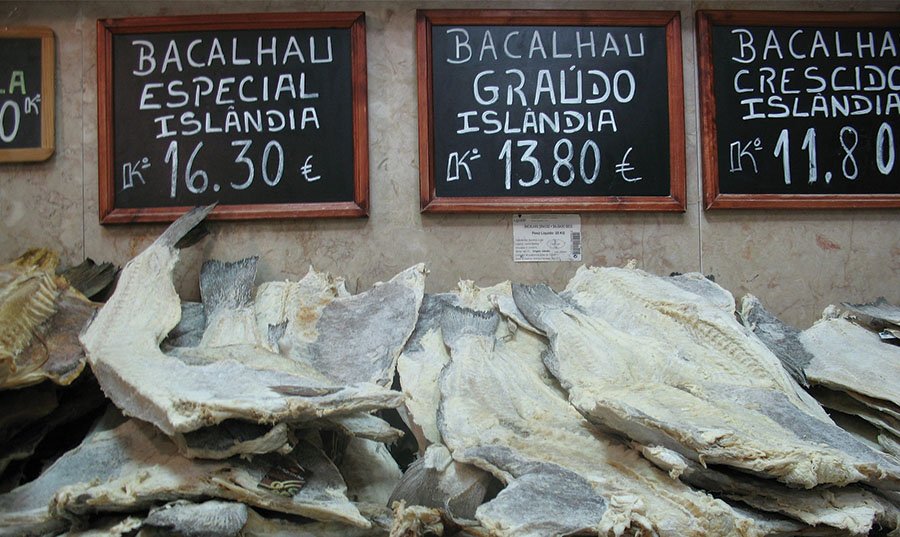A Guide to the Best Places to Retire in Portugal

ARE YOU THINKING ABOUT RETIRING IN PORTUGAL?
You’re in the right place, as this article lists the best places to retire in Portugal. A picturesque country nestled in Western Europe, Portugal has quickly emerged as a sought-after destination for retirees worldwide.
Known for its warm weather, stunning landscapes, (somewhat) affordable cost of living, delicious food, and rich cultural heritage, Portugal offers an appealing combination of relaxation and adventure for those seeking a fulfilling retirement.
⭐️ According to the Annual Global Retirement Index, Portugal is one of the most popular retirement destinations on the planet. With over 500,000 foreigners from around the world living in Portugal, it could be a good option if you are looking to retire abroad.
In this article, we’ll explore the best places to retire in Portugal, diving into hidden gems and lesser-known locations alongside some of the country’s most popular spots. With a vibrant mix of small towns, coastal retreats, and charming cities, you will surely find the perfect place to become a permanent resident in this beautiful nation.
Why Retire in Portugal: 5 Reasons

But first, let’s talk about why Portugal is one of the best countries for retirees. So what is the appeal of retiring in Portugal, and why should you consider retiring here? Let’s look at a couple of reasons.
1. A diverse range of lifestyle options and property styles
So why is Portugal a popular place for permanent residence? Let’s start with its diverse range of lifestyle options. Magnificent cities, quaint villages nestled among stunning landscapes, coastal retreats, and vibrant waterfront communities, Portugal has it all.
It also offers a range of property styles to suit various tastes and budgets. Traditional Portuguese homes exude charm with terracotta roofs and azulejo tilework. Sleek, modern apartments and condominiums in the city center and larger major cities offer convenient access to amenities and public transportation. At the same time, luxurious villas with awe-inspiring sea or mountain views cater to those with more opulent tastes.
2. Warm weather and pleasant climate
Portugal’s warm weather and pleasant climate have long been a magnet for retirees seeking sun-kissed days and mild, comfortable nights. With over 300 days of sunshine in the southern regions, one can indulge in outdoor activities and strolls along the stunning coastline. But be aware that the warm water can only be found in the Algarve, as well as the best beaches.
The mild climate of the north is equally captivating, offering a blend of sunny days and refreshing breezes, perfect for exploring lush green landscapes and quaint, historic towns. Each season in Portugal brings its unique charm, from vibrant spring blooms to the golden hues of autumn.
The country’s weather and diverse microclimates cater to various preferences, making it an ideal destination for retirees who value comfortable, enjoyable climates to spend their golden years.
3. Rich Culture and UNESCO World Heritage Sites
Portugal’s rich cultural tapestry and impressive UNESCO World Heritage Sites make it an alluring destination for retirees passionate about history and art. From the well-preserved medieval town of Óbidos to the awe-inspiring monasteries of Tomar and Leiria, the country’s architectural marvels captivate the imagination and transport visitors to a bygone era.
Museums, galleries, and vibrant festivals showcase Portugal’s artistic flair, while traditional music, such as Fado, echoes through the charming streets. Retirees can explore a treasure trove of heritage sites, including Sintra’s architectural wonders and the Douro Valley’s stunning landscapes.
4. Safe and peaceful environment
The good news, safety, and tranquility significantly make Portugal an attractive retirement destination. It is hands down one of the safest countries among all the EU countries. Ranked as the 4th most peaceful country in the world by the Vision of Humanity’s 2021 Global Peace Index, Portugal boasts low crime rates and a welcoming atmosphere.
The sense of community and care for one another in small towns and larger cities foster a secure environment where retirees can enjoy their golden years without worry. Portugal’s commitment to maintaining a peaceful, safe society makes it a perfect choice for those seeking serenity in retirement.
5. Friendly Portuguese citizens
The warmth and friendliness of the Portuguese people have won the hearts of retirees from around the globe. Known for their genuine hospitality, Portuguese citizens warmly embrace newcomers, making it easy for ex-pats to feel at home in their adopted country. Engaging in local customs and learning the language can further enrich the retirement experience, fostering deeper connections with the local community.
The Best Places to Retire in Portugal
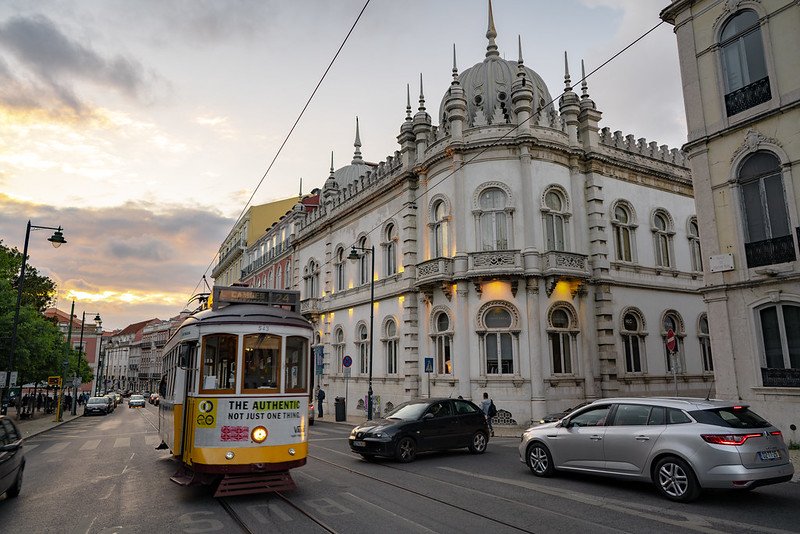
So now that we’ve convinced you why Portugal might be a great place to retire, let’s talk about the best places to retire. From sun-kissed coastal towns to hidden gems in the interior, Portugal offers diverse retirement havens to suit every lifestyle preference.
Let’s explore some top destinations for retirees seeking the perfect balance of beauty, leisure, and community.
💡Remember, though, this is just a snapshot of the many delightful locations Portugal has to offer, and countless other charming spots are waiting to be discovered.
The Algarve, Portugal’s Southern Gem
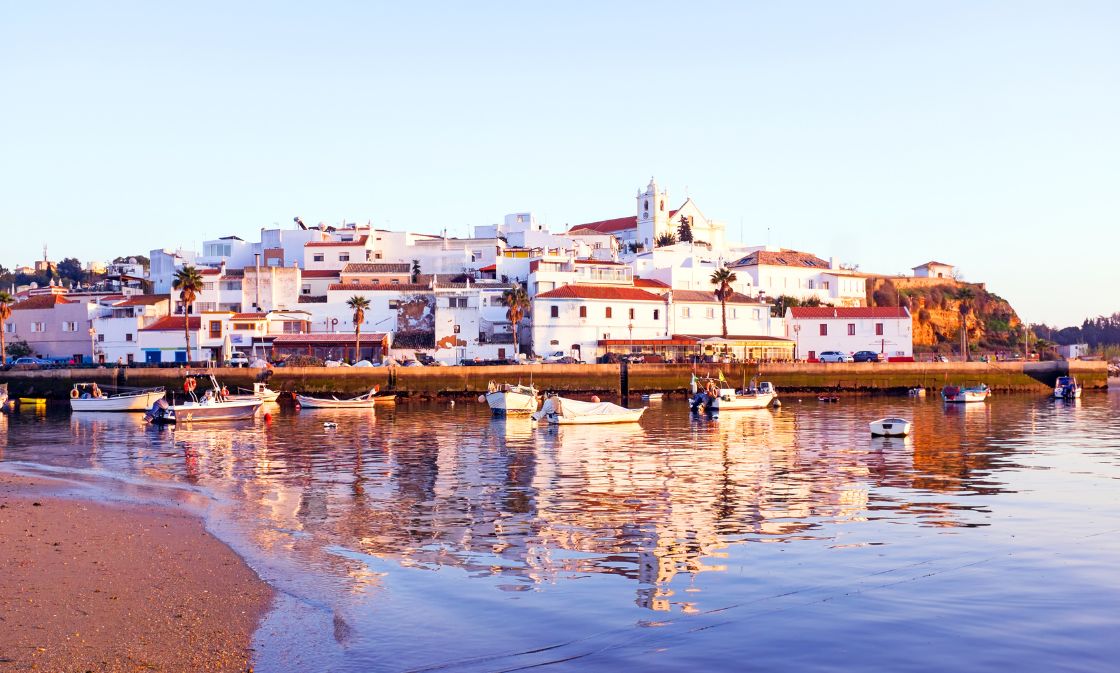
Located in the southernmost region of Portugal, the Algarve boasts 100 miles of stunning coastline, with breathtaking beaches, dramatic cliffs, and crystal-clear waters. The Atlantic Ocean borders the region to the west and south, the Alentejo region to the north, and Spain to the east. Faro International Airport is conveniently located in the region, making it accessible to travelers worldwide.
✅ With over 300 days of sunshine and mild winters, it’s an ideal location for those who enjoy outdoor activities. In short, a sun-soaked active lifestyle. The region is known for its fresh seafood, local wines, and charming villages.
The Algarve is also home to many non-EU residents, most of which are located in Tavira, Vilamoura, Lagos, Faro, Albufeira, Alvor, and Ferragudo. As a result, English is widely spoken. The Algarve is renowned for its world-class golf courses if you love golfing.
❌The Algarve, however, is a popular tourist destination, meaning certain areas can be crowded during peak summer months. If you are looking for an affordable price, maybe look elsewhere. Prices have recently increased, and the Algarve is not as affordable as it once was. Property maintenance and heating (especially in a larger villa) can be costly. Also, rural areas may have limited transportation services, so getting a car might be wise.
The best places to retire in Portugal: The Algarve
1. Lagos

Lagos is a historic town with a rich cultural heritage that dates back to Roman times. Today, the city is a popular destination for retirees seeking a mix of history, culture, and stunning natural beauty.
Lagos has a lively marina complex, a 17th-century fort, and narrow cobbled lanes that wind through the town center. The nearby coastline of Ponta da Piedade is particularly stunning, with boardwalks that descend to the clear blue water decorated with craggy rock formations, caves, and grottoes.
2. Tavira

Tavira is a charming town that boasts a rich cultural heritage and a distinct Moorish influence. The town’s architecture, with its whitewashed buildings, decorative tiles, and wrought-iron balconies, reflects the area’s Arabic past.
Tavira is also home to a beautiful Roman bridge that spans the Gilão River, a castle that dates back to the 13th century, and various museums and art galleries. The town’s location on the edge of the Ria Formosa Natural Park, with its extensive wetlands and sandy islands, is a bonus for retirees who love nature and outdoor activities. Tavira also has a booming foreign community.
3. Faro

Located on the southern coast of Portugal, Faro serves as the capital of the Algarve region and is often referred to as the gateway to the Algarve. The city boasts a rich history, with a walled old town that dates back to Roman times and a lively marina complex where visitors can enjoy various water activities.
Faro also offers easy access to the nearby Ria Formosa Natural Park, where visitors can explore the wetlands and unique wildlife of the region. The city is home to Faro International Airport, making it a convenient destination for retirees looking to settle in the Algarve.
4. Loulé

Boasting a population of around 72,000, Loulé is an inland city nestled in the heart of the Algarve, just 12km from the coast. Its convenient location, 16 km from Faro Airport and 265 km from Lisbon, makes it an appealing destination for retirees seeking accessibility and centrality.
The iconic market of Loulé, housed in an expansive Arab-style complex, is a must-visit attraction. The market extends into the surrounding streets on Saturdays, creating a lively atmosphere. Loulé provides excellent sporting infrastructure for retirees, including facilities for tennis, swimming, cycling, and football, as well as multi-sport pavilions.
Retirees can also enjoy Loulé’s vibrant cultural scene, with the city hosting numerous festivals such as the renowned Carnival, music events, and Mediterranean culture and cuisine celebrations.
Lisbon: The Metropolitan Heart of Portugal
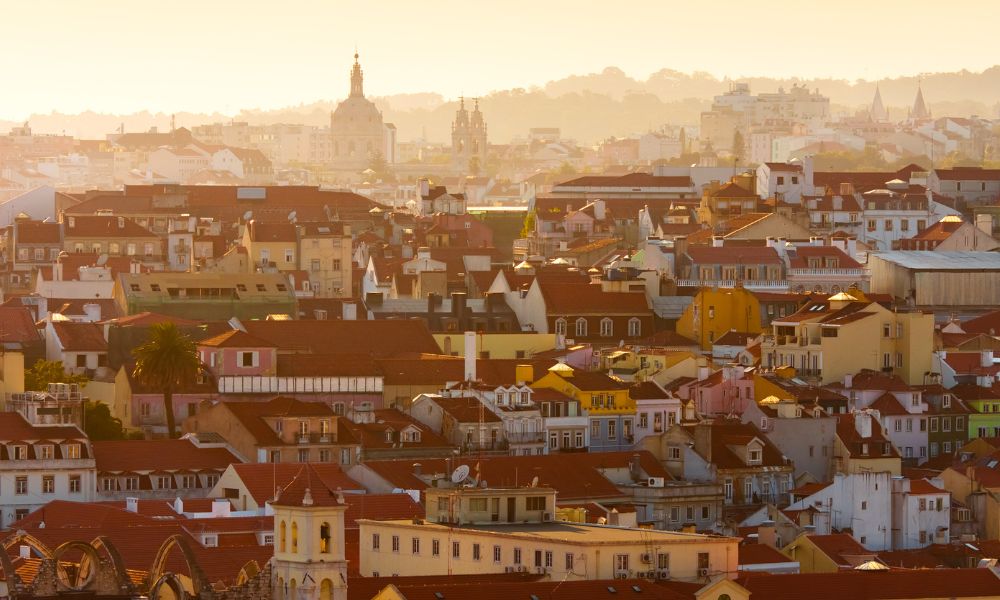
The Lisbon Metropolitan Area is located in the western part of Portugal and includes the capital city of Lisbon and several surrounding municipalities. This region is known for its rich history, diverse culture, and stunning coastal landscapes. The weather in the Lisbon Metropolitan Area is generally mild, with warm summers and mild winters, making it an appealing destination for retirees seeking a Mediterranean climate.
Its unique blend of modernity and tradition makes the Lisbon Metropolitan Area unique. Lisbon is a vibrant cosmopolitan city with a rich cultural scene, offering a wide range of museums, theaters, and art galleries. The region is also home to historic neighborhoods with narrow streets, ancient castles, and picturesque plazas, where one can experience the traditional Portuguese way of life.
✅ Retirees are drawn to the Lisbon Metropolitan Area for its excellent healthcare facilities, efficient public transportation system, and diverse amenities, including international schools, shopping centers, and recreational activities. The region offers a high quality of life, with a mix of urban and natural landscapes, providing outdoor activities like hiking, cycling, and golfing opportunities.
❌ In recent years, the prices in Lisbon have sky-rocketed, and Lisbon is far from an affordable city. Along with high real estate costs, living costs have also increased. Lisbon is currently going through a cost of living and housing crisis, with many Portuguese individuals being pushed out of their homes due to tourism and rising prices.
Cities in the Lisbon Metropolitan Area:
1. Lisbon
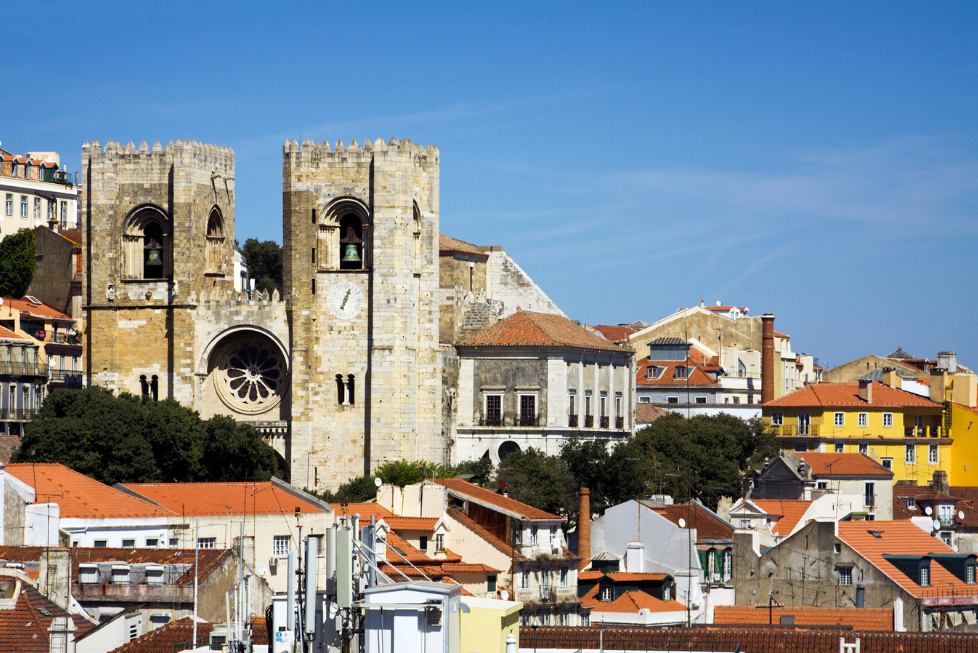
The vibrant capital city of Lisbon is famous for its historic neighborhoods, iconic landmarks, and cultural heritage. With its cobbled streets, colorful tiles, and historic trams, Lisbon offers a unique blend of old-world charm and modern living. The city is known for its lively atmosphere, thriving arts and music scene, and diverse culinary culture. Lisbon is also the largest city in all of Portugal, perfect for international living.
Retirees can enjoy strolling through Lisbon’s historic districts, visiting museums and monuments, and exploring its parks and gardens.
2. Cascais
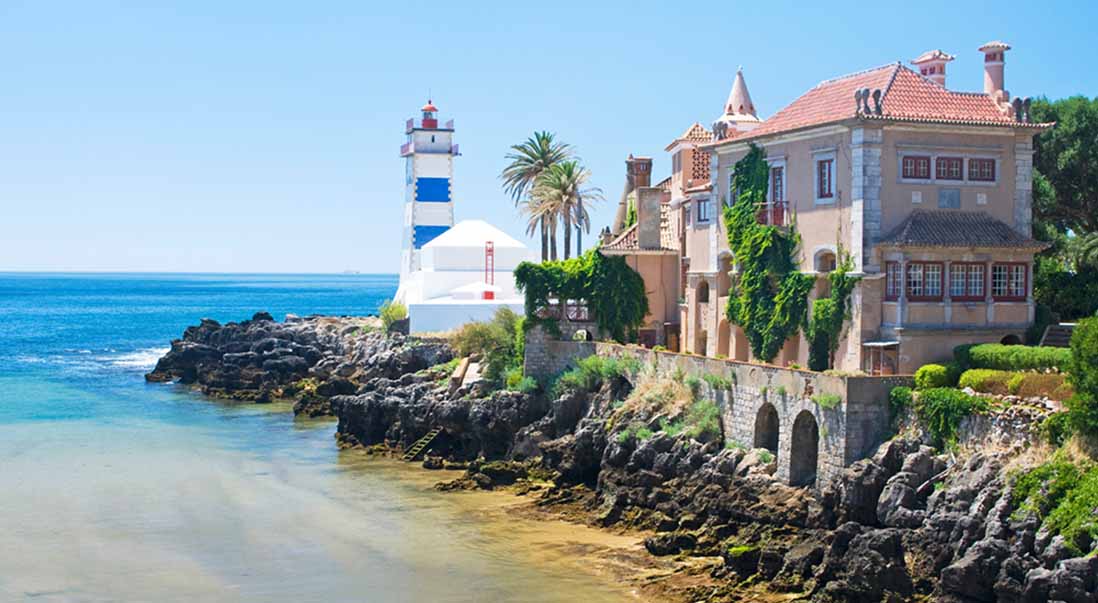
Located along the coast, Cascais is a picturesque town known for its sandy beaches, charming marina, and cosmopolitan vibe. The town is famous for its beautiful coastline, with cliffs, coves, and rock formations that offer breathtaking views of the Atlantic Ocean. Cascais also has a rich history, with its historic center featuring elegant mansions, museums, and cultural events.
Retirees can enjoy a relaxed and laid-back lifestyle in Cascais, with plenty of opportunities for outdoor activities, such as walking along the promenade, swimming, and sailing. But be aware that Cascais is one of the most expensive regions to live in.
3. Sintra
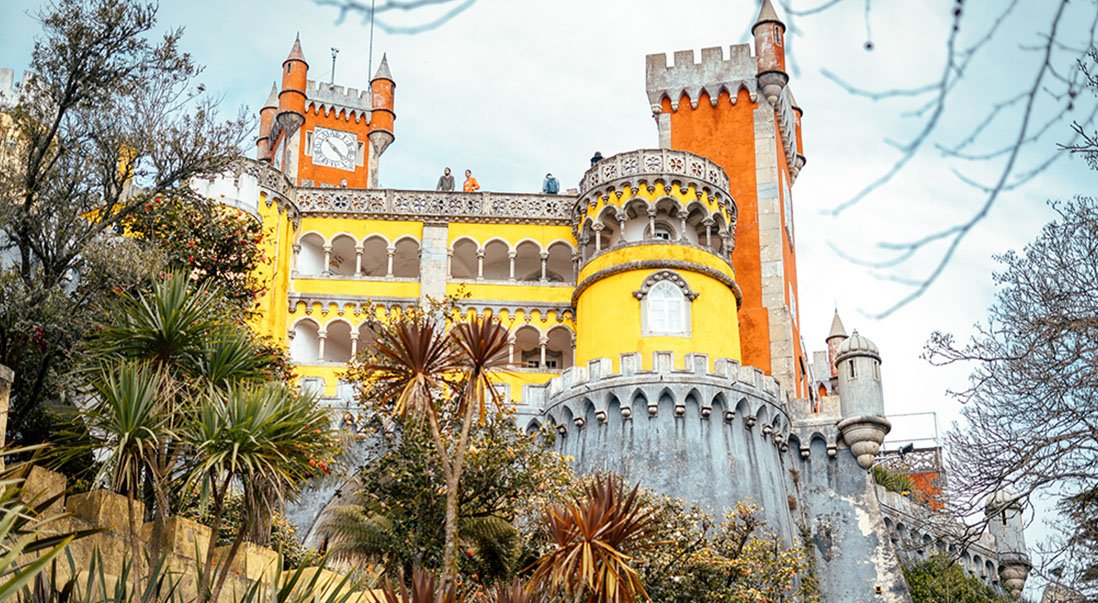
Nestled in the lush hills of the Sintra Mountains, Sintra is a UNESCO World Heritage site known for its fairytale-like palaces, castles, and gardens. The town is famous for its romantic and mystical atmosphere, with its palaces adorned with intricate tilework, beautiful gardens, and stunning views of the surrounding landscapes.
Sintra also offers a cooler climate compared to Lisbon, making it a popular retreat during the hot summer months. Retirees can enjoy the serenity and tranquility of Sintra, with its natural beauty, cultural heritage, and opportunities for leisurely walks and hikes. Its proximity to Lisbon is great, but be aware that Sintra is a popular tourism destination.
4. Setúbal

Setúbal is a coastal city located on the southern bank of the Sado River, known for its beautiful beaches, historic center, and local cuisine. The city is famous for its fresh seafood, particularly its grilled choco frito (grilled cuttlefish), as well as its local wines and cheeses. Setúbal also offers a variety of cultural and recreational activities, with its museums, theaters, parks, and marina.
Retirees can enjoy the relaxed and friendly atmosphere of Setúbal, with its coastal charm, local traditions, and access to nature reserves and the mountainous area of Arrábida. There is also a direct train from Setúbal to Lisbon.
The Silver Coast: Authentic Portugal

The Silver Coast is a stunning stretch of coastline that lies between Lisbon and Porto. With picturesque seaside towns, impressive historical sites, and an overall relaxed atmosphere, the Silver Coast is an ideal destination for those looking to embrace the traditional Portuguese lifestyle while enjoying the region’s natural beauty.
✅ Retirees are drawn to the Silver Coast for its breathtaking coastal scenery, rich history, and authentic Portuguese lifestyle. The region offers a variety of recreational activities, such as surfing, golfing, and exploring charming fishing villages. Furthermore, the Silver Coast provides a more relaxed and traditional atmosphere compared to more tourist-centric regions like the Algarve.
❌ Although the Silver Coast is more affordable than Lisbon, the cost of living and housing prices have been gradually increasing due to the growing interest in the area. While it is still more budget-friendly than the capital, retirees should be aware of the upward trend in property prices and living expenses. Additionally, the region might not offer the same amenities and infrastructure as larger cities or more popular destinations.
Cities and towns in The Silver Coast
1. Nazaré

Nazaré is a charming small fishing village known for its spectacular beaches, colorful boats, and warm, friendly locals. The town is also famous for its giant waves, which attract surfers from around the world. Retirees will appreciate the laid-back atmosphere, fresh seafood, and stunning ocean views, making Nazaré a delightful place to call home.
2. Peniche
Peniche is a vibrant coastal town surrounded by stunning cliffs, sandy beaches, and crystal-clear waters. It’s a popular destination for water sports enthusiasts, particularly surfers, due to its consistent waves. Retirees can enjoy the town’s rich maritime history, explore the impressive fortress, and indulge in delicious seafood at the local restaurants.
3. Óbidos

Óbidos is a picturesque medieval town known for its charming cobblestone streets, whitewashed houses, and impressive castle. The town is famous for its well-preserved city walls, historic churches, and colorful festivals, such as the annual Óbidos International Chocolate Festival.
Retirees can enjoy the relaxed and peaceful atmosphere of Óbidos, with its rich cultural heritage and stunning views of the surrounding countryside. Obidos is a great place to visit or live if you work remotely. If you want more of a social life, move to Caldas (one of the biggest cities, 15 minutes away from the coast), located five minutes away.
4. Leiria
Leiria is a delightful city nestled between the Lis River and the Atlantic Ocean. It boasts a rich history, with its imposing castle overlooking the city and the beautiful Leiria Cathedral. It is the second largest city in the region, yet it still offers a laid-back, relaxed vibe.
Retirees can enjoy the city’s blend of historical sites, modern amenities (including international schools and private hospitals), and cultural events, making Leiria a well-rounded and appealing destination.
The Interior: Unspoiled Portugal

The Interior of Portugal offers a unique opportunity to experience unspoiled Portugal, away from the bustling cities and tourist hotspots. This region is characterized by its breathtaking landscapes, idyllic rural villages, and strong cultural heritage. Retirees looking to immerse themselves in a truly local experience will be captivated by the charm of Portugal’s interior.
✅ Those who choose to retire in the Interior of Portugal will be delighted by the stunning natural beauty, great outdoor activities such as hiking and exploring, and the chance to indulge in the region’s rich culinary heritage. The cost of property here is generally lower, providing retirees with more budget-friendly options, although some may require renovation work. For the lowest costs in terms of real estate, looking into the interior is a good idea.
❌ Settling here (especially in rural areas) could involve the potential language barrier, as English may not be widely spoken. Learning Portuguese might be essential for retirees settling in these regions. Additionally, living in rural areas could mean fewer amenities and services than in more populated regions, which could be challenging.
Cities and towns in The Interior (Central Portugal):
1. Tomar

Tomar is a charming riverside town known for its well-preserved medieval architecture and the impressive Convent of Christ, a UNESCO World Heritage Site. The town is famous for its rich history, with the Knights Templar playing a significant role in the development of the city.
Tomar has recently become quite the hotspot for retirees–there is even a Facebook group you can join to learn more about life in Tomar. Retirees can enjoy Tomar’s peaceful and welcoming atmosphere, with its beautiful parks, historic landmarks, and vibrant local traditions.
2. Mação
Mação is a small town located around 166 km from Lisbon. I’ve put Maçao on this list because I live here. My husband and I bought a bank-owned property and spent months renovating it. Today, we live here full-time. There are many reasons why I would recommend Mação (or the neighboring villages like Penascoso).
Mação offers a warm and welcoming atmosphere and is home to many different amenities, including a pool, gym, free outdoor tennis courts, and a quaint little movie theater (that still shows the latest flicks but on a biweekly basis). It is also home to a couple of restaurants and a sizable supermarket.
Mação is known for its food, hiking trails, and proximity to river beaches, like the award-winning Ortiga. The international community, although small, is continuously growing. Plus, the property prices are attractive, but be prepared to find some fixer-uppers needing a little TLC.
3. Coimbra

Coimbra, the 4th largest city in Portugal, is a vibrant university city located along the banks of the Mondego River, known for its historic architecture, lively atmosphere, and rich intellectual heritage. The city is famous for the University of Coimbra, one of the oldest universities in the Europe Union, and a UNESCO World Heritage Site, as well as its beautiful gardens, museums, and monuments.
Retirees can enjoy the dynamic and cosmopolitan atmosphere of Coimbra, with its mix of students, locals, and expats, as well as its diverse range of cultural events, restaurants, and recreational activities.
4. Castelo Branco
Castelo Branco is a historic city located near the Spanish border, known for its impressive castle, beautiful gardens, and local cuisine. Retirees can enjoy the relaxed and peaceful atmosphere of Castelo Branco, with its mix of modern amenities and historic charm, as well as its friendly and welcoming locals.
In the Castelo Branco region, you’ll find fewer expats, and English is not commonly spoken among the locals. To truly thrive in this area, learning Portuguese is crucial.
The North of Portugal: A Taste of Tradition
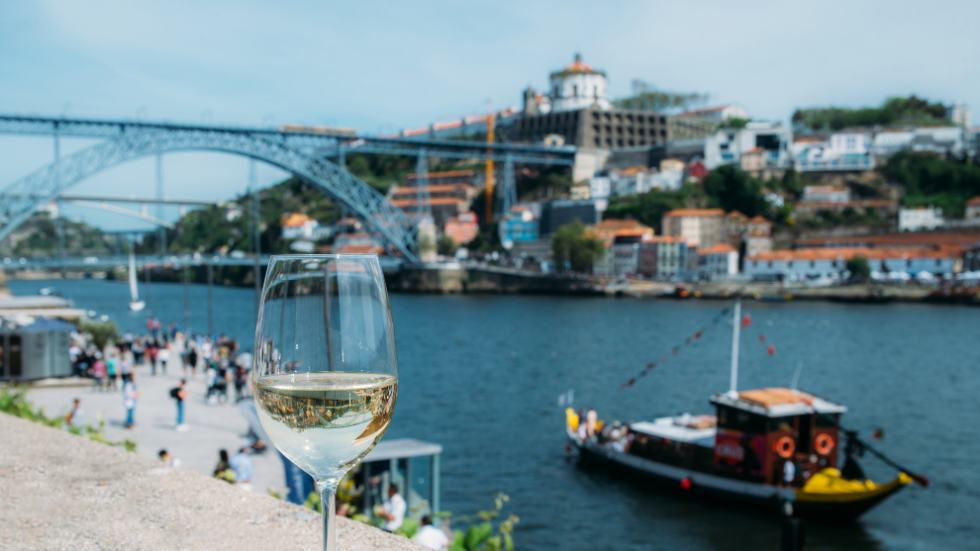
When it comes to a genuine Portuguese experience, the North of Portugal is where you’ll find it. This region is known for its rich history, stunning landscapes, and strong cultural traditions. The cities and towns up north are brimming with character and charm, making it a perfect retirement spot for those who crave a more authentic European lifestyle. From bustling cities like Porto to hidden gems in the Douro Valley, the North offers many possibilities for retirees.
✅ One of the biggest perks of living in the North of Portugal is the opportunity to immerse yourself in the country’s history and culture. With cities like Porto, Braga, and Guimarães, you’ll never run out of fascinating sites to explore, from centuries-old churches to traditional vineyards. The cost of living is also generally lower compared to Lisbon and the Algarve, making it a more affordable option for many retirees.
❌ On the flip side, the weather in the North can be cooler and wetter, especially during the winter months. So, if you’re seeking year-round sunshine, this might not be the ideal region for you. Additionally, while there are expat communities in the North, they tend to be smaller than the Algarve and Lisbon areas (although this is rapidly changing), which could be a downside for some retirees looking for a more international social scene.
1. Porto
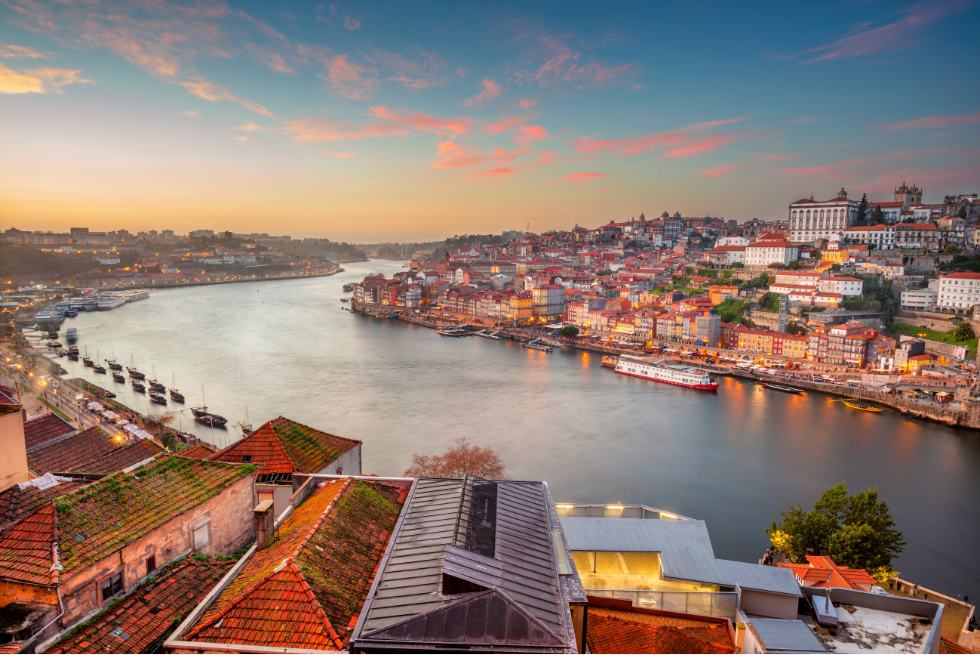
Porto, Portugal’s second-largest city, is a captivating destination with a rich history, earning its status as a UNESCO World Heritage Site. Retirees can explore the city’s charming streets, stunning Douro River, and the famed Douro Valley, known for Port wine production and spectacular landscapes.
The city offers a vibrant cultural scene, diverse dining experiences, and beautiful nearby beaches. Despite being a bustling urban center, Porto maintains a relaxed pace of life, and the cost of living is relatively reasonable compared to other European Union cities. This combination makes it an ideal choice for retirees seeking a blend of urban living and Portuguese charm.
2. Braga

Braga, one of the oldest cities in Portugal, is a delightful destination for retirees seeking a mix of history, culture, and modernity. As the third-largest city in Portugal, Braga offers a big-city vibe with a wide array of amenities, such as shopping centers, international schools, public/private hospitals and malls, without the higher costs of Lisbon and Porto. It also has a great public transportation system.
Known as Portuguese Rome, Braga is filled with centuries-old churches, monuments, and a stunning cathedral, giving the city a distinct historical charm. In addition to its rich heritage, Braga boasts a lively cultural scene, including festivals, museums, and theaters, providing retirees with endless entertainment options. The city is also surrounded by picturesque nature, offering outdoor enthusiasts plenty of opportunities for hiking and exploring nearby national parks.
With its welcoming atmosphere and a strong sense of community, Braga is one of the best cities for retirees who want to experience an authentic Portuguese lifestyle in a vibrant and historic setting.
3. Viana do Castelo
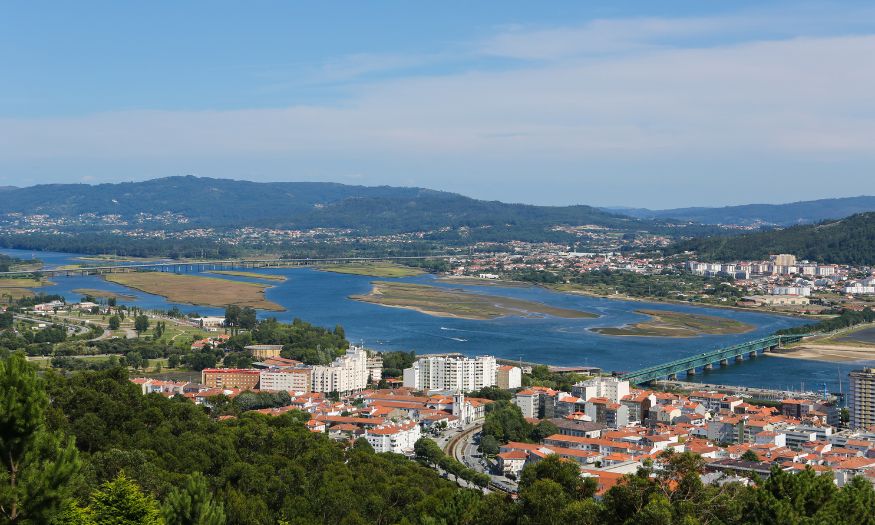
Viana do Castelo is a picturesque coastal city in northern Portugal, located just an hour away from Porto. It provides retirees with a relaxing environment where they can enjoy stunning river and ocean views, as well as a rich history and culture. The city boasts a vibrant town center, full of cafes, restaurants, and shops that cater to both locals and expats.
While there is a smaller expat community compared to larger cities, it is welcoming and supportive. The nearby beaches, such as Praia do Cabedelo, are perfect for leisurely strolls or water-based activities. Viana do Castelo offers retirees the perfect blend of city life and natural beauty.
4. Chaves
Chaves, a historic city in northern Portugal, is nestled close to the Spanish border and surrounded by lush, green landscapes. Retirees seeking a mix of ancient charm and modern amenities will find it appealing. Chaves’ fascinating history dates back to Roman times, with the impressive Roman bridge serving as an enduring symbol of the city’s past.
The city offers a range of cultural experiences, such as exploring its well-preserved castle and various museums. Chaves has a small yet warm expat community, with retirees enjoying easy access to local markets, shops, and eateries. Outdoor enthusiasts can take advantage of nearby walking trails and the Tâmega River, perfect for fishing or canoeing. Although Chaves isn’t a bustling metropolis, it provides retirees with a unique blend of history, natural beauty, and a tranquil pace of life.
The Islands: Remote Beauty and Enchantment

Retiring to Portugal’s islands can offer a unique and tranquil lifestyle surrounded by breathtaking natural beauty. The two main Portuguese island groups are Madeira and the Azores, each with its distinct characteristics and charm.
✅ The Portuguese islands of Madeira and the Azores offer retirees a unique blend of breathtaking natural beauty, a pleasant subtropical climate, and a slower pace of life. Both archipelagos boast stunning landscapes, including volcanic formations, lush green forests, and crystal-clear waters perfect for outdoor enthusiasts. The islands also have a strong sense of community, with friendly locals and an emerging expat presence.
❌ However, the remote location of the islands might not be ideal for everyone. Traveling to and from mainland Portugal or other countries can be time-consuming and expensive. Additionally, the smaller size of the islands means fewer amenities and entertainment options compared to larger cities on the mainland. Finally, the cost of living can be slightly higher in some areas, particularly when it comes to imported goods and groceries.
1. Madeira
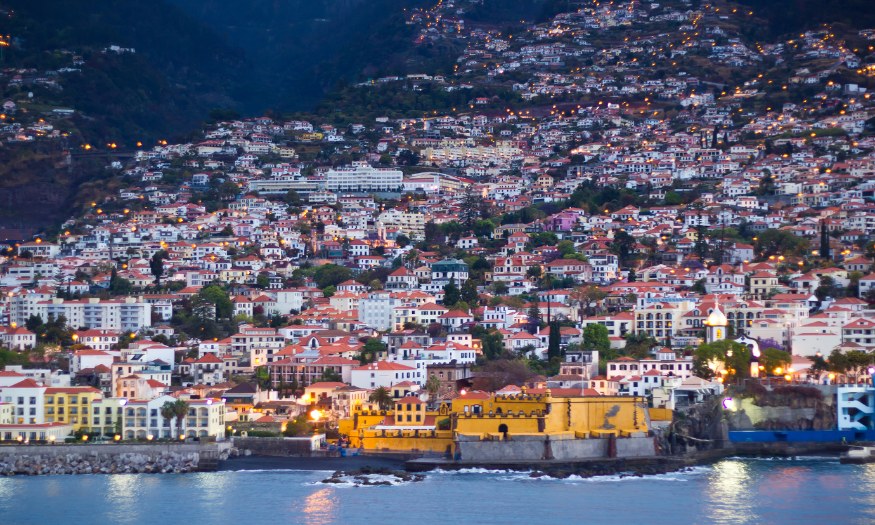
Madeira, an archipelago situated in the North Atlantic Ocean, is known for its subtropical climate, lush landscapes, and vibrant flora. Funchal, the capital, offers a mix of historic charm and modern amenities.
Retirees in Madeira can enjoy a relaxed pace of life, scenic hiking trails, and various cultural events throughout the year. The island is well-connected to mainland Portugal and other European destinations by regular flights.
To learn more about life in the Maderia, join the Expats – São Miguel Island – Azores or Expats in Azores Facebook groups.
2. The Azores

The Azores, a group of nine volcanic islands in the North Atlantic, boast an unspoiled environment and a strong connection to nature. Retirees here can indulge in activities such as whale watching, diving, and exploring the islands’ stunning landscapes.
The Azores are also known for their geothermal hot springs, which can provide a relaxing and rejuvenating experience. Though more remote than Madeira, the Azores are still accessible by flights from mainland Portugal and other international destinations. Each island has its own unique charm, allowing you to choose the perfect setting for your island retirement.
To learn more about life in the Azores, join the Expats – São Miguel Island – Azores or Expats in Azores Facebook groups.
The Process of Retiring in Portugal

When considering retiring in Portugal, it’s essential to understand the process and legal requirements involved. One of the key aspects to consider is obtaining the appropriate visa to become a legal resident and retire in the country.
💡After five years of permanent residency, individuals can apply for citizenship, which would grant them the ability to hold dual citizenship with Portugal and their home country.
Visa Requirements
For retirees, the most common visa option for non-EU citizens the D7 visa, also known as the Passive Income Visa or retirement visa. This visa is designed for individuals who have a stable, passive income, such as a state pension from the United States, rental income, or investments. The D7 visa allows retirees to reside in Portugal with a residence permit and enjoy its many benefits without the need for employment.
However, it’s important to note that visa requirements and eligibility may vary depending on your country of origin and individual circumstances, like a Portuguese bank account, proof of income and a 12-month lease. It’s crucial to consult with the Portuguese consulate or embassy in your home country to ensure you have the most accurate and up-to-date information regarding visa requirements and the application process.
Remember that rules and regulations are subject to change, so always double-check the current requirements before making any decisions or starting your application process. Proper research and preparation will help ensure a smooth transition to your new life as a retiree in Portugal.
⚠️ The Portuguese government has ended the Portugal Golden Visa. So you will not be able to gain permanent residency through this program.
There are many Facebook groups available for anyone looking for advice about retiring in Portugal, for example the Canadians in Portugal (taxation/immigration) group.
Healthcare and Insurance
Access to quality healthcare is an essential factor for retirees when choosing a new country to call home. Portugal has a well-regarded healthcare system, including both public and private insurance options. As a retiree, you’ll want to familiarize yourself with the healthcare system and determine the best insurance plan for your needs.
💡Portugal’s healthcare system ranks 17th in the 2021 World Index of Healthcare Innovation by the World Health Organization.
Public healthcare in Portugal is called the Serviço Nacional de Saúde (SNS)–also known as the National Health Service. It provides coverage for most medical treatments and services in public hospitals, but it’s primarily available to Portuguese citizens and foreign residents. As a retiree with a D7 visa, you may be eligible for the SNS, but you will need to register and obtain a health card called Cartão do Utente.
Alternatively, you may choose to purchase private health care insurance, which can offer more comprehensive coverage and faster access to specialists and private hospitals. Several private health insurance providers cater to expats and retirees, offering policies tailored to their specific needs. Make sure to compare plans and choose the one that best suits your healthcare requirements and budget.
Financial Considerations
When planning your retirement in Portugal, it’s important to understand the financial implications and steps involved in establishing your new life.
As a retiree in Portugal, you will need to determine your tax resident status. Becoming a tax resident means that you will be subject to Portuguese taxes on your worldwide income. However, Portugal has double taxation agreements with many European countries and non-European countries, ensuring that you won’t be taxed twice on the same income. These agreements can provide tax relief and exemptions, depending on your specific situation. It’s essential to consult with a tax professional to understand your obligations and potential benefits.
Cost of Living in Portugal

Many people consider moving to Portugal (especially as a Canadian or American citizen), due to the low cost of living. But Portugal isn’t necessarily cheap, especially in specific parts of the country.
When considering the cost of living in Portugal, it’s important to acknowledge the significant differences between big cities like Lisbon and Porto, and smaller towns or villages. In Lisbon or Porto, a couple could expect to spend around €2,500 to €3,500 per month, including rent for a comfortable apartment in a (somewhat) desirable area. But it can be more, depending on your needs. However, in smaller towns and villages, there could be lower costs, with a monthly budget of around €1,500 to €2,000.
Housing costs vary greatly depending on the location and the condition of the property. In Lisbon or Porto, a modern apartment may cost between €1,500 and €1,800 per month, while in smaller towns, you can find rentals for as low as €400 to €700 per month. Purchasing a fixer-upper property in a rural area can also be a cost-effective option, with prices starting from around €50,000. But cost of materials is not cheap, so make sure to take that into consideration as well.
💡Fun fact, we bought our property for €70,000 (originally listed for €100,000). But it was a total fixer-upper. We did most of the work ourselves, and we paid around €30,000–and we aren’t done yet. If you want to hire someone to help you, be prepared to pay more and wait.
Food costs in Portugal are generally quite reasonable, with a couple spending around €300 to €400 per month on groceries. Eating out is also affordable, with a meal at a local restaurant typically costing between €10 and €20 per person. In smaller towns and villages, you may find even lower prices and more reasonable prices for fresh produce at local markets, further reducing your food expenses.
Keep in mind that these are rough estimates, and individual costs will vary depending on lifestyle and personal preferences.
3 Tips for a Smooth Transition
A smooth transition to retirement in Portugal is essential for enjoying your golden years to the fullest. Here are some tips to help you settle into your new life:
- Learning the language and integrating into the community
While many Portuguese people speak English, especially in tourist areas, learning the language will help you connect with locals and integrate into the community. You can take language classes, practice with language exchange partners, or immerse yourself in daily interactions. Engaging in community events and local activities will also help you feel more at home.
- Renting before buying property
Before committing to a property purchase, consider renting first. This allows you to get a feel for the area, its amenities, and its lifestyle before making a long-term investment. It also gives you the flexibility to explore different regions and communities before settling on the perfect location for your retirement.
- Connecting with other expats and local resources
Building connections with other expats and utilizing local resources can provide invaluable support during your transition. There are numerous expat groups, forums, and social media pages where you can share experiences, ask for advice, and make new friends.
Best Places to Retire in Portugal: FAQS

Do you still have some questions about the best places to retire in Portugal? Here are some answers to the most searched questions about retiring in Portugal.
Where Do Most Expats Live In Portugal?
The majority of foreigners in Portugal can be found in the Algarve region, Lisbon, and Porto. These areas offer a balance of modern amenities, beautiful landscapes, and a welcoming large expat community.
Are American Retirees Welcome In Portugal?
Yes! American retirees are generally well-received in Portugal. The country is known for its warm and friendly locals who appreciate foreigners embracing their culture and way of life.
Where Do Most English-Speaking Expats Live In Portugal?
English-speaking expats predominantly reside in the Algarve region, Lisbon, and Porto, where they can find larger expat communities, modern amenities, and increased English-language support.
Where Is The Best Place For Retirees In Portugal?
The best place for retirees in Portugal depends on personal preferences. The Algarve, Lisbon, Porto, Central Portugal and the islands all offer unique benefits, such as beautiful landscapes, rich history, and diverse lifestyle options.
How Much Money Do You Need To Retire In Portugal?
To retire comfortably in Portugal, a couple may need €1,500-€2,000 per month in smaller towns or €2,500-€3,500 per month in larger cities like Lisbon and Porto.
Is It Easy To Retire In Portugal?
Retiring in Portugal can be relatively easy, especially with the right visa, financial planning, and integration into the community. It is essential to research, visit, and make connections to ensure a smooth transition.
What Are The Benefits Of Retiring In Portugal?
Benefits of retiring in Portugal include a high quality of life, affordable living costs, beautiful sunny weather, diverse landscapes, rich history, and a welcoming atmosphere for expats.
What are the cons of retiring in Portugal?
Some cons include the language barrier, as English may not be widely spoken outside of tourist areas, requiring retirees to learn Portuguese. Additionally, adjusting to the slower pace of life, especially in rural areas, can be a challenge for some. Limited healthcare options in remote regions and occasional bureaucratic hassles may also be drawbacks.
However, the pros often outweigh these cons for many retirees who choose to call Portugal home.
Final Thoughts: Best Places to Retire in Portugal
Portugal has captured the hearts of retirees from around the world with its delightful blend of culture, natural beauty, and warm hospitality. As you consider your options, remember that this diverse beautiful country offers something for everyone, whether you prefer a bustling city, a tranquil coastal haven, or a charming village steeped in history.
Take the time to explore, connect with locals and fellow expats, and embrace the enriching experiences that await in this enchanting nation. Remember, this guide is only a starting point, and the best way to discover your perfect retirement destination is to experience Portugal for yourself.
Happy exploring!



